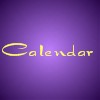|
I posted a blog about the recent WWE event I attended. I know a bunch of wrestling fans, and some interesting questions came up. As a writer, I had to answer these questions. What happened was an exercise in character creation.
Name: 3W
The three W's are wit, wisdom, and willpower.
Logo:
A large "W" with a tilted "3" sitting in the first recess of the W.
Outfit: Varies
Actually, only the coloring would vary. The design would be a full-body, kind of like Rob Van Dam's with short sleeves. The coloring would be one main color, lines of different colors like paint strokes, and my logo created in thick bursts of the streaks.
Entrance Music: Linkin Park's Papercut
It's just got that cool opening guitar riff and that strong bass beat, which is me.
Catch Phrases
I'd start out with, "You know . . . " and continue with a nice, calm, cool, collected rant about my adversary's pedigree. Then, I'd continue with how it's adversely affecting my adversary and, in turn, all the fans. As a heel, I'd just insult the resident's of the city I'm in. If a babyface, I'd say how he's got the fans wanting to see him get his posterior kicked, or that he deserved to lose the title. If he's the kind who Just Doesn't Know How To Shut Up (e.g. Booker, JBL, or Mr. Kennedy), I'd slip in a little advice: "Stop using your mouth and start using your brain!" I'd finish with, "And do you know why?" Here the crowd roars, "Why!?" And I say that such-and-such event "makes me wanna say . . . 'Oh, yes!!!'"
What I'd Be Known For
First, my trademark would be holding up three fingers in a "W" shape, for 3W. Next, I'd interrupt at exactly the wrong time, replacing adversaries' stuff with something other than usual. For instance, in the middle of catch phrases, I'd come out without music and replace what they were going to say. Second, I'd dress up in something appropriate to get the intended responce, such as a chicken suit if Rick Flair refused giving me a match. Finally, I'd use something totally random and unexpected. (I wonder if Rick Flair knows about the chicken clucking version of his music?)
How I'd Be Introduced
I'd be the manager to a lady wrestler who totally loses it in the ring, and I encourage it. After a while this leads her to turn on me and the you-know-what kicks my posterior. I'm on my own.
How I'd Continue from There
The next week, Maria (whose on-screen character is a total ditz) would interview me. I use technical terms that, unfortunately, she recognizes. She replies sweetly before she throws down her mic and says, "But I do know when I'm being called a blonde bimbo, you [insert word here]!" The next week, in a backstage scene, I'm telling blonde jokes and get told off by Carlito (Trish Stratus' on-screen boyfriend). On the next show, I go out to apologize sometime after Maria has done an interview. I apologize profusely and promise, "You will not hear any more blond jokes, which will be difficult since Maria's already spoken tonight--Oh, did I go there??? Yes, I did!!!" and go into a loud rant filled with disguised blonde jokes that ends when I turn around in time to see a good, close-up look at the chair Maria uses to knock me out. I then get the living daylights kicked out of me by JOhn Cena and Carlito. From there, I have plans I'm not telling anyone about . . .
First Match
I won't stay down, but I don't get any offense in, either. Eventually, I win by disqualification.
Who I'd Feud With
Any of the divas. No, seriously, I'd feud with Jim Duggan (big fan since Mid-South), Finley (I'm part Irish), or Sylvan (Quebec vs. Texas, baby!)
This is only a small part of how character creation works. There's sooooo much more. Personality, history, and more. In wrestling, physical appearance is a gimme; in writing, it's created.
It's hard for someone who's never seriously written to realize just how much goes into character creation. Any attempt to use a character sketched out with as much information as I've provided here, plus what I've mentioned, is doomed to fail. Ancestry, education, disabilities, psychology, work history, even anything that seems insignificant can turn out to be important.
The smallest thing can mean anything. Take, for example, a character ("Don") who uses two sugars in their coffee. If we see an unidentified character who uses cream, we know it's not Don. Or Don could develop diabetes because of other high-sugar foods eaten. Perhaps, more simply, it's why he's always so hyper.
There are several rules for what to use in a story, but there are two rules I live by:
- You will typically use less than half your character concept in your story. A number of authors I've read have given figures as low as 10%, but that seems harsh. The important thing is that it makes sense to you. Your readers make sense of your characters because all the character elements fit together. This leads to my second rule.
- Everything must be important to the character is some way. Is he successful because of his parents, or in spite of his parents? Is he bitter because it's a bad marraige, or does he really love her? Does he tell off his employees because they're doing a bad job? Look at the character concept below:
|
Character Concept: Donald Tyler Wright
Donald grew up in an economically depressed neighborhood. He thought it was normal until the day his dad brought home a television set. His favorite programming was business news shows because he wanted to get out of this bad part of town. He would walk to the library after school (one of the worst schools in the area) and learn more than his teachers taught. He graduated valedictorian, but lost his true love, Annette. At Harvard, he was trapped into marrying Carmela, a real shrew, but to this day he has never forgotten Annette. Carmela and the kids blow all his money, and they have almost lost their house on Long Island twice. As a result, he takes out his anger on whomever just happens to try to tell him to do something he doesn't want to do. His anger is so intense he cannot drink coffee or tea without sugar.
|
Everything in the above description fits together like hand in glove. In writing the story, however, you have to know what his studied, his parents' background, Carmela's background, his income, his business position, their neighborhood and its statistics, what was available at the library (after all, he walked there in his economically depressed area), even what happened to Annette and if Don knows.
|
Don and Annette broke up because Harvard was so far from the outskirts of Detroit, and she couldn't go with him. She is now a social councilor helping get crime off the streets of her childhood home. The last she heard about Don was about his shotgun wedding; then, his parents were killed in a drive-by shooting, which led her to work in her old neighborhood.
|
Defining your character adds natural limits. It doesn't just tell you what he can do, but what he can't do. If he's a plumber, he won't perform a root canal. If his degree is in mathematics, he won't be looking for unidentified protozoa. Your characters must make sense, and a complete character sketch is vital.
|







